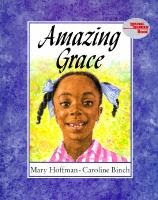 UNESCO Literacy Prize winners for 2010
UNESCO Literacy Prize winners for 2010
The six laureates of the UNESCO International Literacy Prizes* for 2010 were proclaimed today by the Director-General of UNESCO, Irina Bokova, on the recommendation of an international Jury, which met between 5 and 9 July.
UNESCO King Sejong Literacy Prizes, supported by the Republic of Korea:1: General Directorate of Adult Training in Cape Verde.
Its Adult Education and Training Programme (EdFoA) was recognized for its relevance and flexibility, its priority on women and its remarkable impact: the illiteracy rate in Cape Verde decreased from 60% to 20% between 1974 and 2005 and continues to fall.
Its Adult Education and Training Programme (EdFoA) was recognized for its relevance and flexibility, its priority on women and its remarkable impact: the illiteracy rate in Cape Verde decreased from 60% to 20% between 1974 and 2005 and continues to fall.
Family Literacy Project (FLY). This intergenerational approach, with parents participating in and benefiting from their children’s learning, provides a model for enhancing literacy in immigrant families and promoting integration.
UNESCO Confucius Prizes for Literacy, supported by the People’s Republic of China:
1: Non-Formal Education Centre in Nepal
National Literacy Campaign. Its integrated programme is based on themes including the environment, maternal and child health, women’s development and income generation.
2: Governorate of Ismailia in Egypt Females for Families.
It is an innovative approach to solving societal problems by training village girls to become development facilitators in their own community, thus building female leadership.
The committee decided to award the Honourable Mention of the UNESCO Confucius Prize for Literacy to two laureates this year.
Coalition of Women Farmers
(COWFA) in Malawi for the Women’s Land Rights Project (WOLAR), which assists women farmers in achieving social and economic independence.
North Catholic University Foundation in Antioquia, Colombia
Virtual Assisted Literacy Programme, which uses e-learning to improve technology skills and employment opportunities in marginalized communities.
UNESCO’s International Literacy Prizes are awarded every year in recognition of excellence and innovation in promoting literacy throughout the world. In accordance with the United Nations Literacy Decade (UNLD) thematic calendar, the theme for this year’s Prizes was literacy and women’s empowerment.
The award ceremony will take place at UNESCO in Paris on International Literacy Day, 8 September.
*The King Sejong Literacy Prize was created in 1989 through the generosity of the Government of the Republic of Korea. Each laureate is awarded US $20,000.
The UNESCO Confucius Prize for Literacy was established in 2005 through the generosity of the Government of the People’s Republic of China. Each laureate is awarded US$20,000.








